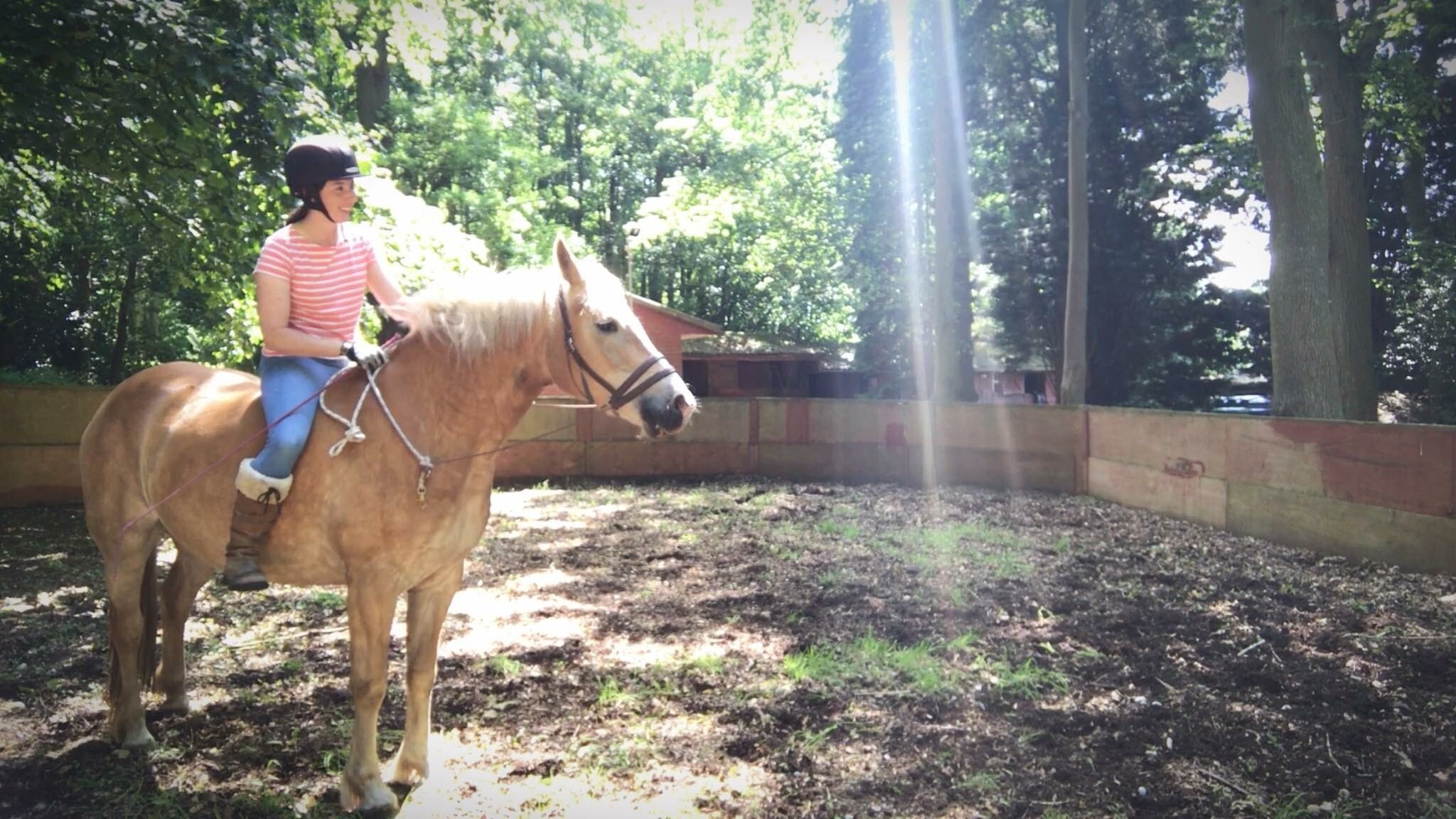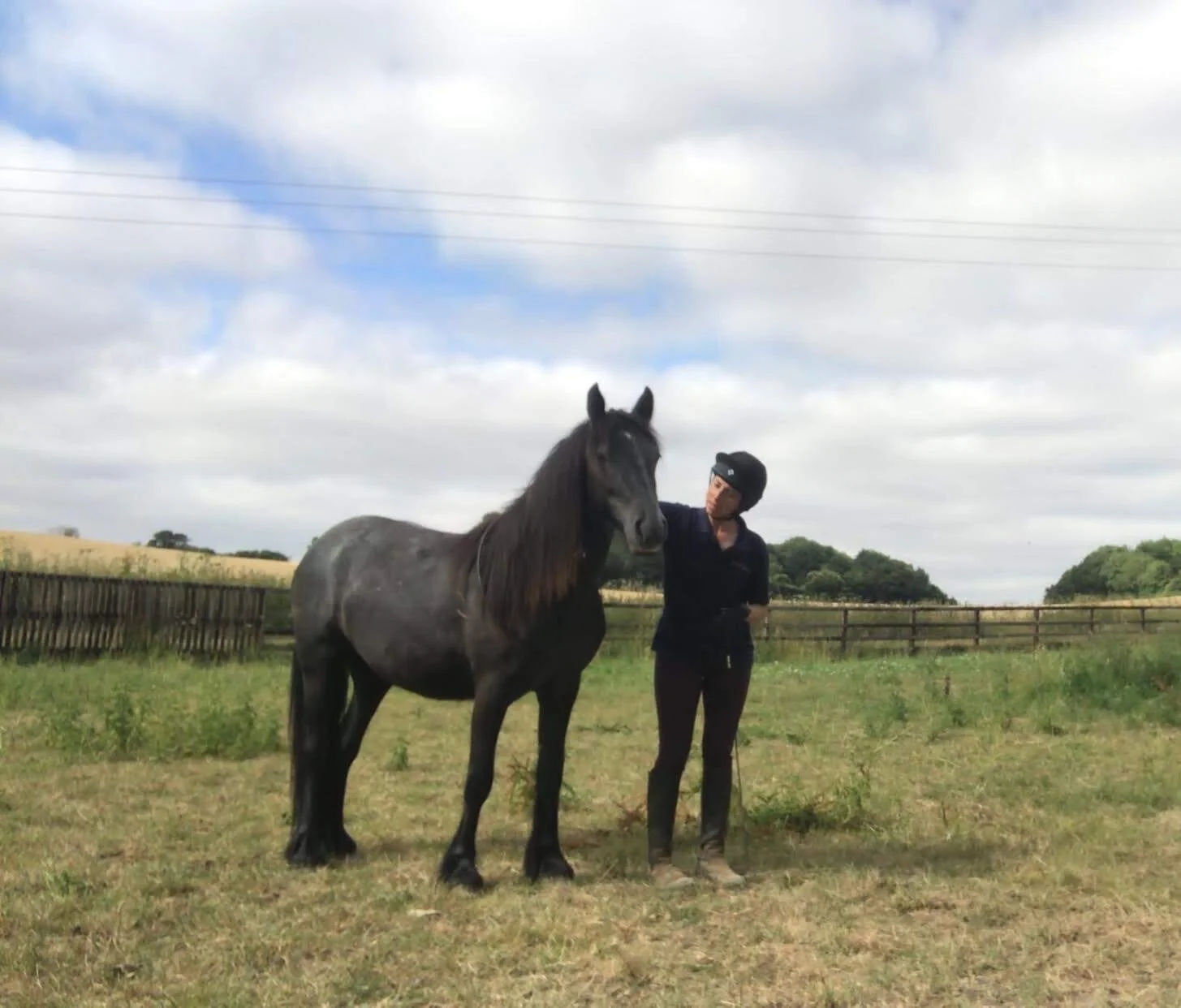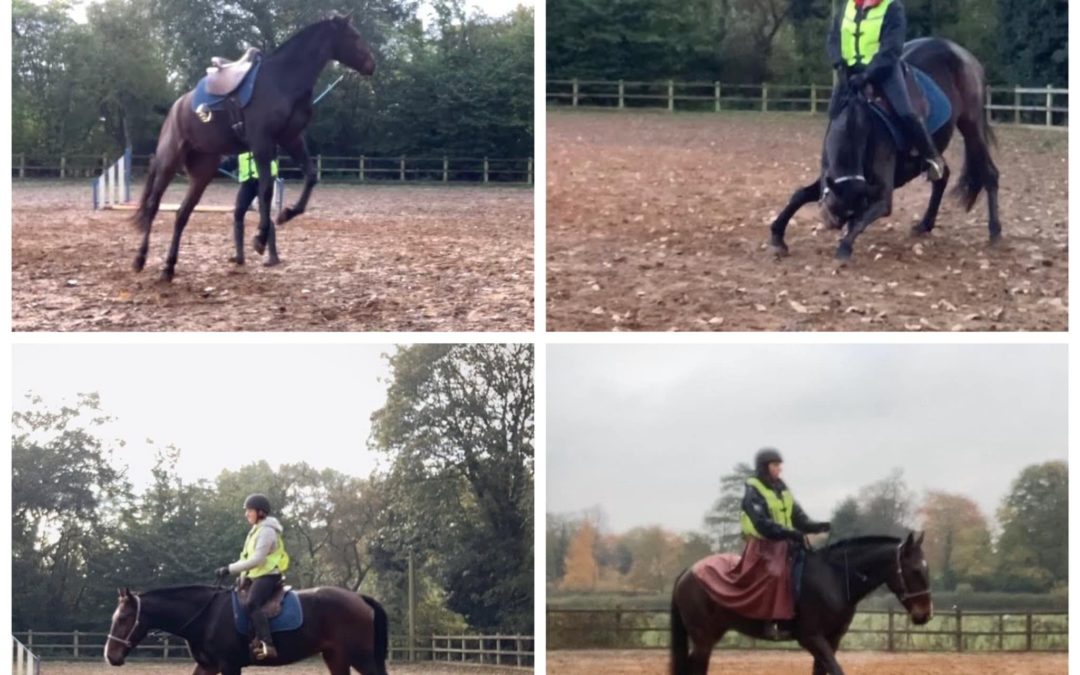
When you have a young, rescued or inexperienced horse, it is inevitable you will encounter challenges. These challenges may be a difficult behaviour, a test of your own patience or nerve, it could be a misunderstanding or miscommunication or simply the horse testing boundaries. We will all have difficult, even fearful moments with our horses; it is not a question of if, but when. Thinking anything else is foolish. For those who get through the early years without a problem, you are one of the very few lucky ones! What is crucial, is how we address and face those challenges.
Very recently, I have experienced firsthand what so many of my own students have done and what I routinely help others to overcome. Fear.
My fear hasn’t been rational and I never even found a specific trigger. But one thing is absolutely certain. My energy levels and my body language has a very definitive effect on my horse. When my horse is in “flight mode” he is not going to be helped by me being in “flight mode” too! What a recipe for disaster!
Fetal, fear, fall
Let me list a few little things I have felt though these episodes… perhaps you may have felt one or more of these yourself!
– tense body
– shaking/shivering arms and hands
– tense tongue
– dry mouth
– butterflies in my tummy, feelings of adrenaline all the way down my legs to my toes
– feelings of wanting to give up for fear of getting hurt (self preservation)
– clenched butt cheeks (!)
– tearful
– shallow, quick breathing
– leaning forward in the saddle (fetal position)
Now…breathe! No, really, breathe!
If you have felt any of these feelings, let me help you.
When working with our horses it is important to be in the moment with them. We all know that horses are prey animals. Their survival depends on being in the moment and instinctively doing, not taking copious time to think. This is where we encounter problems. We, as humans, have very active minds; when we encounter a threat (in this case, a “bad ride”), more often than not we will automatically protect ourselves on subsequent rides. Often, riders will go into a fetal position, tense up, lose their balance – and on occasional, fall off! Here starts the nasty cycle of fear and self preservation. How do we get out of this? How do we “reset” our minds?
There is no easy way to do this. It takes time and is dependent on the horse, the rider and the cause of anxiety. But there are some things we can do to help the process.

-
Take your time.
There is no shame in taking a little time. We do not teach children to run before they can walk. So why not do the same with your horse? Can they stand quietly for you? Will your horse halt when asked, every time? Can you move each one of your horse’s feet independently with just one rein? If not, this is where I would suggest you start. It can help to rebuild lost confidence and will give a solid foundation to your horse’s training. The best way to develop your horse’s body; for their muscle development, suppleness and strength, is to do lateral work and slow, quiet work from halt and in walk. What many would see as a “step back” in horse training, by taking things slowly and revisiting walk it is actually a smart way to ensure your horse is a safe, relaxed and of course, a healthy athlete.
-
Grounding exercises.
This is a great exercise for when you are at home or when you are at the yard, before you get on your horse – especially if your nerves are jittering!
Best said out loud, acknowledge the following:
5 things you can see
4 things you can touch
3 things you can hear
2 things you can smell
1 thing you can tasteThis is a particularly useful exercise when you feel your anxiety is out of your control.
-
Methodical horse training.
This is what I do and it is what Sense Equine is all about! Everything we teach our horses is broken down into manageable, bite size chunks. It is simplified and the training is almost rhythmic and methodical. This not only makes it easier for both us and our horses to learn, but it also helps to regulate our breathing and to relax us through mind engagement and action. Meditative, right?
-
Breathe.
Yes…I went there! Breathe, man, breathe! Box breathing is a really useful technique for helping to relieve stress and to aid concentration.
– breathe in a count to 4
– hold your breathe for a count to 4
– exhale in a count to 4
– hold for a count to 4 and repeat as necessary.So: inhale… 1, 2, 3, 4… hold… 1, 2, 3, 4… exhale… 1, 2, 3, 4… hold…1, 2, 3, 4… simple!
If box breathing is too much to think about, why not try singing! This is another fantastic way to regulate breathing. Put together a riding playlist full of your favourite songs. My mentor swears by music… she routinely plays music to her horses and is certain they each have a taste and a preference. You know what? I think she’s right!
-
Remember the positive.
It is so easy to get wrapped up in what isn’t going right or the movement you just can’t seem to perfect. Always remember how far you have come. Look back to where you were a week, a month, a year ago. Realise how much you have learnt and how well you are doing. As horse people, we are constantly learning. However we choose to train, whatever your discipline, we will forever be furthering our education.

And… two things NOT to do!
1. Do not bring your frustration to work!
When you are with your horse, it is important to leave your anger and negativity behind. Shut the car door and leave your niggles there – seriously! Your horse doesn’t want to feel your butt cheeks clenching in annoyance! They certainly won’t want to have your frustrations taken out on them. It seems obvious…but it is easy for us to become consumed with everyday grievances. Allow the yard to be a place of calm; focus on the time being spent with your horse as your time to just be!
2. Do not set unrealistic goals.
No…you’re not going to the Olympics…well, most of us aren’t! If you are having worries about your horse bolting or bucking, if they are too hot to handle or simply bad mannered on the ground, quit focusing on your next dressage test and give you horse a bit of time. Horses never act out for no reason. Take time to work with your horse; find out what the issue is. Have their teeth been checked? Back? Tack and saddle fit? Is there a gap in their training? Be honest with yourself, truly honest. If you need to spend a year or two building your horse’s confidence and taking things slowly, it really isn’t very long in the grand scheme of things. Setting real goals will boost your confidence, your moral and I guarantee it will improve your relationship between you and your horse.

Are you an anxious rider? Do you need some help with your horse?
Use the link below to book a session with Alex (UK) or Theresa (USA)
